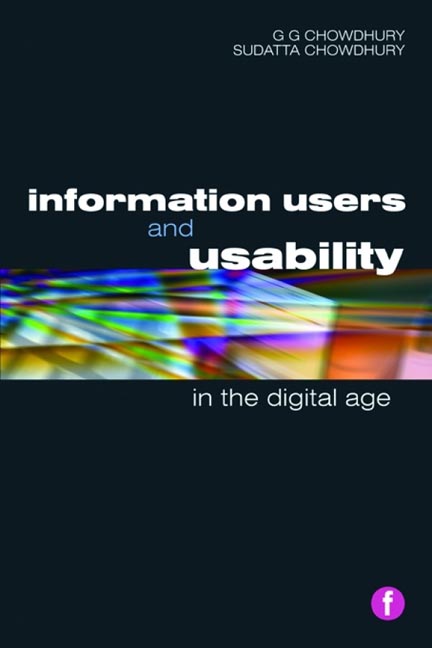Book contents
- Frontmatter
- Contents
- Preface
- Figures and tables
- 1 Introduction
- 2 Information needs and user studies
- 3 Human information behaviour studies and models
- 4 Usability study basics
- 5 Usability study participants
- 6 Usability data analysis
- 7 Web usability
- 8 The usability of digital libraries
- 9 The digital divide, digital natives and usability
- 10 Issues and trends in usability research
- Index
10 - Issues and trends in usability research
Published online by Cambridge University Press: 09 June 2018
- Frontmatter
- Contents
- Preface
- Figures and tables
- 1 Introduction
- 2 Information needs and user studies
- 3 Human information behaviour studies and models
- 4 Usability study basics
- 5 Usability study participants
- 6 Usability data analysis
- 7 Web usability
- 8 The usability of digital libraries
- 9 The digital divide, digital natives and usability
- 10 Issues and trends in usability research
- Index
Summary
Introduction
Although general evaluation and performance measurements of library and information services, and evaluation of information online information services and databases have a long history, usability studies of information websites and online information products and services are of recent origin. Methods, tools and technologies that have been developed and used within software communities – the human–computer interaction community in particular – and subsequently in the context of the web have been adopted for usability research in the context of online information products and services. However, since users are at the core of any usability study and user studies have remained a major area of research within the information science community, many methods and techniques that were developed for user studies have been adopted and used in usability research. While significant amounts of progress have been made to usability research in information, many new challenges have also appeared over the past few years. Some of these challenges result from the changing nature of the web and emerging technologies, standards and so on; others are caused by the very nature of the web and ICTs that are affected by many factors, including the digital divide, digital and information literacy and the fast changing nature of society caused by the culture of web and mobile technologies, social networking technologies and so on. These emerging technologies and culture bring tremendous opportunities as well as challenges for usability researchers within the information science community. This chapter provides a quick overview of some of the emerging technologies and challenges and points out some new research to show the trends and opportunities in usability research.
Usability methods and techniques
As discussed earlier in this book, usability studies in digital libraries and online information products and services use a variety of methods and techniques, most of which were originally developed within the software engineering and human–computer interaction research communities. However, some tools and techniques, such as transaction log analysis, eye tracking and cognitive studies of users, are of relatively recent origin and have been adopted from other fields of studies. Similarly, other areas of study and corresponding methods and techniques, such as in the digital divide, information literacy and so on, are being brought within usability research since they have a significant impact on the usability of online information products and services.
- Type
- Chapter
- Information
- Information Users and Usability in the Digital Age , pp. 187 - 202Publisher: FacetPrint publication year: 2011



